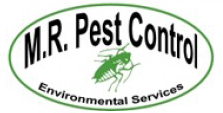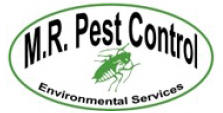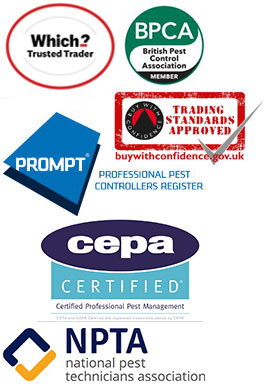Did you know that the average housefly carries over one million bacteria on its body? When it comes to dealing with pesky flies infiltrating our living spaces, we all want a quick and effective solution. In this post, we’ll explore practical tips and tricks to get rid of flies in your UK home for good. From simple DIY remedies to preventative measures, we’ve got you covered. Say goodbye to buzzing annoyances and hello to a fly-free environment that keeps your household clean and comfortable.
Key Takeaways
-
Understanding the dangers of house flies is crucial to taking effective control measures.
-
Identifying and eliminating fly attractants in your home can significantly reduce fly infestations.
-
Utilise natural remedies like vinegar or herbs to repel flies without harsh chemicals.
-
Create homemade fly traps using common household items to catch and reduce the fly population.
-
Harness the power of essential oils such as lavender or eucalyptus to deter flies and keep your home smelling fresh.
-
Installing protective measures like fly screens on windows and doors can prevent flies from entering your home.
-
Take proactive steps to maintain a fresh-smelling home and implement strategies to prevent future fly infestations.
Understanding house fly dangers
Health Risks
House flies pose significant health risks to us. They can transmit diseases such as food poisoning and typhoid fever.
Breeding Habits
We need to be aware of the breeding habits of house flies. They thrive in warm, moist environments like rubbish and decaying matter.
Food Contamination
Preventing flies from coming into contact with our food is crucial. This helps avoid contamination and potential health hazards.
Identifying fly attractants
Common Attractants
Flies are lured by sugary substances like spilt drinks or fruits left out, making them common house guests. They also flock to decaying food, garbage bins, and uncleaned pet areas.
Dirty Conditions
Scum in drains emits odours that attract flies, along with damp spots and standing water. Flies are enticed by alcohol residues, encouraging their presence indoors.
Recognising these attractants is crucial in preventing fly infestations. By promptly cleaning spills, sealing food containers, and maintaining cleanliness in pet spaces, we can significantly reduce the chances of flies invading our homes.
Natural remedies for fly control
Essential Oils
We rely on essential oils like eucalyptus, lavender, and peppermint to effectively repel flies in our homes. These natural solutions are not only safe but also pleasant-smelling alternatives to chemical insecticides.
Preventive Measures
Our approach involves implementing preventive measures such as proper waste disposal and regular cleaning routines. By keeping our living spaces clean and free of food debris, we significantly reduce the chances of attracting flies into our homes.
Importance of Cleanliness
Maintaining cleanliness is key in fly control. Flies are drawn to filth and decaying matter, so by eliminating these attractants, we create an environment that is uninviting to them. Using natural repellents alongside cleanliness practices provides a double barrier against potential fly infestations.
Utilising homemade fly traps
Ingredients for traps
Creating homemade fly traps is a cost-effective and environmentally friendly approach to eliminating flies from our living spaces. By using simple ingredients such as eucalyptus oil, mint, and orange peel, we can effectively deter house flies without the need for harmful chemicals.
Additional remedies
In addition to homemade fly traps, we can also utilise citronella candles and pepper spray as effective solutions to keep flies at bay. These natural remedies not only help in repelling flies but also add a pleasant fragrance to our homes.
DIY solutions for a fly-free home
Implementing various DIY solutions is crucial in ensuring that our living spaces remain free from the presence of pesky flies. From creating traps using items like cotton balls soaked in apple cider vinegar to strategically placing them near areas prone to fly infestations, we can effectively combat this nuisance.
Harnessing essential oils’ power
Natural Repellent
We harness the power of essential oils such as eucalyptus, lavender, and peppermint to naturally repel flies. These oils act as effective deterrents due to their strong scents that flies find unpleasant.
Application Methods
Utilising essential oils in diffusers or as sprays allows us to create a fly-free environment within our homes. By strategically placing these oils near entry points or fly-prone areas, we effectively keep flies at bay.
Benefits of Essential Oils
The benefits of using essential oils extend beyond just repelling flies. Not only do they help in deterring these pests, but they also contribute to maintaining a fresh-smelling living space. Their natural properties make them a preferred choice for those seeking an organic and chemical-free approach to pest control.
Key Tips for Success
-
Mix a few drops of peppermint oil with water in a spray bottle and apply it around windows and doors.
-
Place cotton balls soaked in lavender oil near bins or areas with organic matter to deter flies.
-
Create sachets using eucalyptus leaves or clusters and hang them in light fixtures to repel flies effectively.
Keeping a fresh-smelling home
Using Essential Oils
We can utilize essential oils like mint and lavender in diffusers to create a fragrant atmosphere that repels flies naturally. These scents are pleasant for us but repulsive to flies, keeping them at bay.
Cleaning Routines
Implementing regular cleaning routines is crucial in eliminating odours that attract flies. By maintaining a clean kitchen and disposing of food waste promptly, we can prevent the presence of flies in our living spaces.
Incorporating Fresh Scents
By placing scented candles or fresh flowers strategically around the house, we not only enhance the ambience but also discourage flies from entering. The fragrance masks any potential odours that may attract flies, creating an unwelcoming environment for them.
Pros:
-
Natural and safe method
-
Enhances indoor air quality
Cons:
-
Regular maintenance required
Installing protective measures
Fly Screens
We can install fly screens on our windows and doors to keep flies out of our houses. These screens act as a physical barrier that prevents flies from entering our living spaces.
Insect Repellents
Using insect repellents can be an effective way to deter flies indoors. By strategically placing these repellents in key areas, we create an invisible shield against these pests.
Citronella Candles
Citronella candles not only add ambience to our homes but also act as a natural deterrent for flies. Placing them near entry points or outdoor seating areas can help keep flies at bay.
Proactive Measures
To ensure a fly-free environment, we must take proactive steps by implementing these protective measures. By combining fly screens, insect repellents, and citronella candles, we create a comprehensive defence system against fly infestations.
Preventing future fly infestations
Waste Management
When it comes to preventing future fly infestations, we must focus on efficient waste management. We need to ensure that all waste is disposed of properly and that bins are tightly sealed to prevent flies from accessing potential food sources.
Hygiene Maintenance
Maintaining a high level of hygiene is crucial in keeping pests at bay. By cleaning up spills immediately and regularly disinfecting surfaces, we can significantly reduce the chances of attracting flies into our living spaces.
Food Protection
To effectively deter flies, covering food items is essential. Flies are attracted to exposed food sources, so by keeping all food covered, especially fruits and sweets, we can limit their access to these tempting treats.
External Environment
Securing outside bins is equally important in preventing fly populations from thriving near our homes. By ensuring that bins are covered and not overflowing, we can minimise the chances of attracting pests into our living areas.
Summary
Understanding the dangers of house flies, identifying attractants, using natural remedies, homemade traps, essential oils, maintaining a fresh-smelling home, installing protective measures, and preventing future infestations are crucial steps in keeping our homes fly-free. By implementing these strategies, we can create a more hygienic environment for us and our loved ones. Let’s work together to tackle this issue and enjoy a fly-free living space.
Frequently Asked Questions
How can house flies pose dangers to health and hygiene in a UK home?
House flies can spread diseases like salmonella and E. coli, contaminating food and surfaces they touch. Their presence indicates unsanitary conditions, posing health risks to residents.
What are common attractants for flies in a UK household?
Flies are attracted to decaying organic matter, pet waste, food scraps, and standing water. These provide breeding grounds and food sources for them.
What natural remedies can effectively control fly infestations in a UK home?
Natural solutions like vinegar, herbs, essential oils, and fly-repellent plants can deter flies due to their strong scents or repellent properties.
How do homemade fly traps help in managing fly populations indoors?
Homemade traps using ingredients like apple cider vinegar or sugar attract flies and trap them, reducing their numbers effectively.
Which essential oils are known for their power in repelling flies in a UK household?
Essential oils such as lavender, peppermint, eucalyptus, and citronella are effective in repelling flies due to their strong scents that flies dislike.




